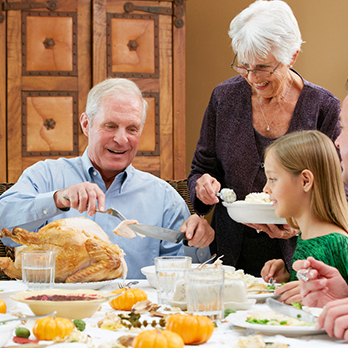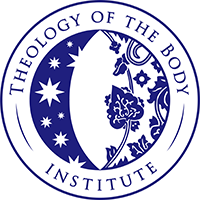

Thanksgiving: A Eucharistic Celebration
Thanksgiving: A Eucharistic Celebration


Happy Thanksgiving! How fitting it is that we set aside this day each year to give thanks to God for his many blessings. Here I’d like to reflect on the deeper meaning of “thanksgiving” and offer some things to chew on beyond turkey and pumpkin pie.
Consider that our ability (or lack thereof) to offer true thanks to God is determined by the posture with which we stand before him and the world. And, in the final analysis, there are really only two postures to take: receptivity or grasping. The posture we assume depends upon our concept of God.
If God is love and the giver of all good things, then to attain the happiness we long for, we only need to receive it as a gift from his hands. If we conceive of God as a tyrant, as someone holding out on us, however, then we will see him as a threat to our happiness, turn from our posture of receptivity, and seek to grasp at happiness for ourselves. As the Catechism explains, “Constituted in a state of holiness, man was destined to be fully ‘divinized’ by God in glory.” This is the happiness we all desire, and it is what God wishes to grant us as a gift. “Seduced by the devil, [however, we] wanted to ‘be like God,’ but ‘without God, before God, and not in accordance with God’” (CCC 398).
As Saint John Paul II described it, original sin is the moment man cast “doubt in his heart on the deepest meaning of the gift” and, by doing so, “man turn[ed] his back on God-Love, on ‘the Father.’ He in some sense casts him from his heart” (TOB 26:4).
Herein lies the beginning of all grasping and the death of “thanksgiving.” Let me explain with an example.
When my oldest son (now in college) was 4 years old, I recall seeing this fallen tendency to deny the gift when he asked me for a cookie after dinner. Before I could even get the cookie out of the box, what did he do? He grasped at it. So, always looking for the teaching moment, I said to him, “Hey, bud, you’re denying the gift. If you believed in the gift all you would need to do is hold your hands out in confidence and receive the cookie as a gift. And then, having received the cookie as a gift, you’d be ready to say ‘thank you’ for the gift.”
When we believe in the gift God wants to give us and receive it as such, we naturally want to give thanks for the gift. In other words, we come to live a eucharistic life because eucharist means “thanksgiving.”
Today, let us open to receive everything and everyone around us (even the relatives who might annoy us the most) as a gift, and let us give thanks to the Giver of all good things.



